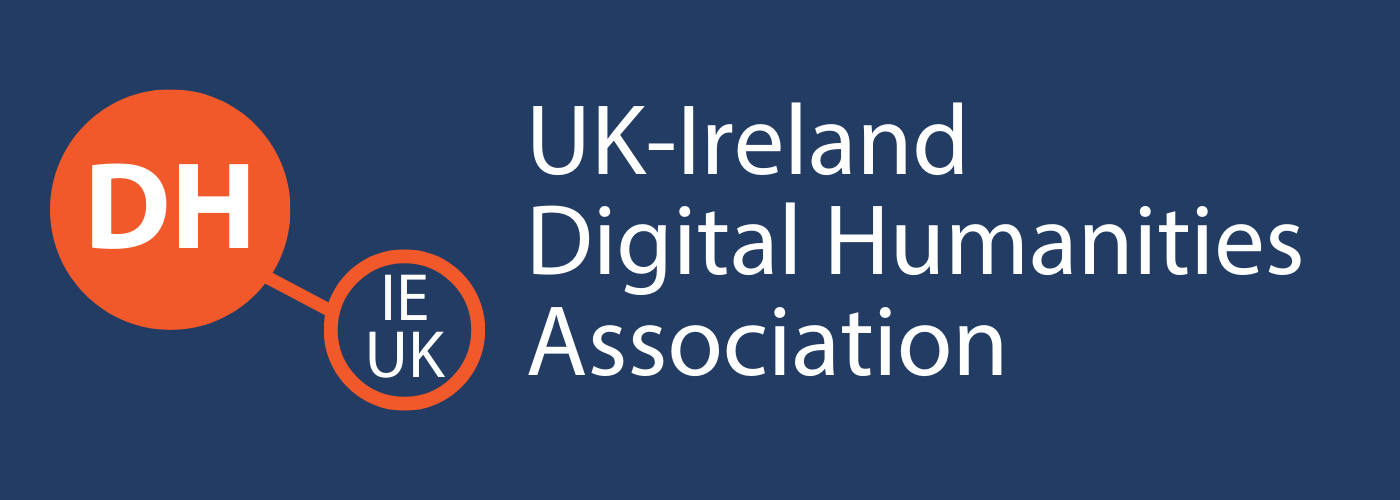Digital Correspondence: transhistorical perspectives on language, materials and corpora
Welcome to the Digital Correspondence Community Interest Group

Join Our Mailing List
Learn about events and activities within the CIG and from further afield via our mailing list

Correspondence, both historical and contemporary, provides a window on human interactions, our personal experiences and social lives. This group explores the linguistic and material facets of correspondence, broadly defined, to understand more about communication practices across the centuries. We focus not only on what was written, and by who, but also how these texts create meaning. We welcome explorations of correspondence from across the centuries and in diverse media (handwriting, print, digital) and evaluate what language analysis can tell us: what are the trends, the themes, the shared concerns over time? How are language resources used to convey identity, construct relationships, and achieve aims and objectives, spanning the personal and the political?
Digital tools are at the heart of our explorations. Corpus collections, including letters, print epistles, emails, and text messages, have transformed our ability to describe and interpret this text type. We explore how our data and its digitization enables or impedes our ability to research effectively. Key themes for discussion and potential development include the factors shaping the availability of correspondence data and how to accommodate that in the creation of correspondence corpora; the capacity to format and capture linguistic and other semiotic modes efficiently, transparently and accessibly; and the areas of interest that digital investigations, in particular, can open up for those working with correspondence across academia, cultural heritage organisations, archives and education.
Join our JISC mailing list for regular updates about our events and activities
UPCOMING EVENTS:
What is this and why is it here?!
Challenges and curiosities in correspondence
Friday June 14, 2-3.30pm (BST – UTC +1hr)

Letter with mole skin (WC843258, Record Group 15) U.S. National Archives and Records
Online on Zoom – all welcome
https://ucd-ie.zoom.us/j/68685196806?pwd=VHg2ZFBwenNNVmxESDRhVHdUaXZiUT09
Meeting ID: 686 8519 6806 – Passcode: 378994
Join us for our final event of the academic year, an informal and interactive session where we will explore the unusual, surprising, and inexplicable things we have found in our own archival research into correspondence, past and present.
The session will consist of 5-10 minute presentations about puzzling finds from correspondence data: a signature in an unexpected place in a letter, an off-topic phrase in an email corpus, an addressee that doesn’t fit the social network of the writer, or even a mole skin(!)… After the presentations, colleagues from the research and archival worlds will discuss and respond to the issues raised.
We hope to produce the proceedings of the event into an Open Educational Resource.
Call for Contributions:
We invite you to share your own examples! Please click below to submit your proposal by Thursday 30 May. We are particularly keen to foreground PhD students and other Early Career colleagues. If we receive a large number of submissions, we will select presenters in a way that prioritises these colleagues, and gives a range of examples and data types. Notifications will be sent out by Wednesday 5 June.
PAST EVENTS:
ROUNDTABLE: Ethics, Access and Sustainability
17th April 2024: 2-3.30pm (BST – UTC +1hr) on Zoom

Our second event of the academic year is a roundtable on three key points related to digital correspondence archives:
- What are the ethical concerns around using individuals’ correspondence for research, especially where consent was not freely given?
- Who should, or can, have access to this data? How do we balance openness in research against individuals’ privacy?
- How can we ensure the long-term sustainability of these projects and databases, which are often developed with significant investment of resources?
Our Speakers:
• Professor Tim Grant and Dr Sarah Atkins, Aston Institute for Forensic Linguistics, Aston University – https://www.aston.ac.uk/research/forensiclinguistics/databank
• Dr Jack Orchard and Mark Rogerson, Electronic Enlightenment, Bodleian Library, Oxford University – https://www.e-enlightenment.com/index.html
• Jodie Double, Head of Digital Content and Copyright, University of Leeds Libraries – https://library.leeds.ac.uk/
JOIN US!
Join us on Zoom – no sign-up needed – at https://ucdie.zoom.us/j/61280899457?pwd=NzRRSHEzdks0c05qbURuejF3OVBmZz09
LAUNCH: Conversations about Correspondence
Wednesday 22nd November 2023: 12.30-2pm
‘Machine writing letters’ generated by images.ai
This informal roundtable will discuss the theoretical, methodological and practical considerations of working with correspondence using digital frameworks and techniques. Our three speakers work with a range of correspondence materials – present-day and historical – and will offer perspectives based on their experience of academic, GLAM and professional contexts.
ONLINE via Zoom: https://universityofleeds.zoom.us/j/85352699047
SPEAKERS:
- Julia Gillen, Lancaster University
- Callum McKean, The British Library
- Niall O’Leary, Digital Humanities & IT Consultant
Members Directory
CIG Members can be part of our Members Directory, which shares details of our members’ expertise, interests, to enable collaboration and as recognition of our community.
Meet the CIG Coordinators
The idea for the Digital Correspondence CIG emerged from a conversation between Rachele, Helen and Mel at the 2022 ICAME conference at Anglia Ruskin university. Rachele was chairing a panel on corpora and letters, and Helen and Mel were presenting some work on Anglo-Scots royal correspondence. It struck us that the panel included papers on correspondence from diverse periods of history, but that digital methods and (often implicit) theory were shared across many of the talks.
When the call for the UK-Ireland Digital Humanities Association Community Interest Groups was released a few months’ later, we took it as a sign!

Hi, my name is Rachele De Felice and I am a Lecturer in Applied Linguistics and English Language in the School of Languages and Applied Linguistics at The Open University.
My research interests are in corpus linguistics, pragmatics, workplace communication, and the intersections of these – such as corpus pragmatics. The main sources of data I use in my work are email corpora, such as the emails from the Enron Corporation and the Hillary Clinton Administration. Their large scale – tens of thousands of messages each – and range of interlocutors at different levels of seniority makes them ideal to answer questions about how people in different roles achieve their communicative goals in professional settings. I have been looking at speech acts such as expressing solidarity, making a request, avoiding a task, giving advice, as well as more complex interactions such as discussing problems, taking responsibility, and agreeing on solutions. I am excited to be involved in the creation of this CIG because, over the years, I have realised that there are many shared concerns and interests among the wider research community, even among colleagues working at opposite ends of the chronological spectrum. For example, from a practical perspective, although emails are digital artefacts, when they are created or preserved it is not usually with linguists’ and DH scholars’ research needs in mind! In the course of my work, I have been grappling with many issues of data integrity, readability, and information blanks that are frequently encountered by those working with other written materials. As for some of the research questions themselves, interrogating the data to understand how language shapes the writers’ self-image and social positioning has applicability at any point in time, not just the late 20th century. I look forward to sharing ideas and discoveries – and frustrations! – with other CIG colleagues, and I am sure I have a lot to learn from the expertise of others.
Hello! My name is Mel Evans, and I’m a Lecturer in English Language (with Digital) in the School of English at the University of Leeds. I’ve been working with correspondence for the last decade – starting with the sixteenth-century royal letters of Elizabeth I, and gradually exploring other kinds of letter-writing from the early modern period and into epistolary-type exchanges of present-day digital communication. My interest in letters links to the valuable insights they offer as records of interaction, alongside the stylistic variation we find in them that reflects and informs the letter-sender’s identity and their social relationships. With a background in corpus linguistics, I’ve had to grapple with decisions around how to digitize historical manuscript data for language analysis, whilst dealing with the masses of semiotic information that is lost when language is abstracted from the material properties of the page. My work on correspondence engages with sociolinguistic and pragmatic approaches, as well as exploring social semiotics and multimodality as ways of reading these texts. In reality, I spend a lot of time wrangling with historical handwriting in archives, and thinking about the eccentricities of early modern epistolary spelling, material practice and identity. As an advocate for transhistorical approaches to language and technology, I’m excited to see what we’ll discover through our CIG conversations and events.



